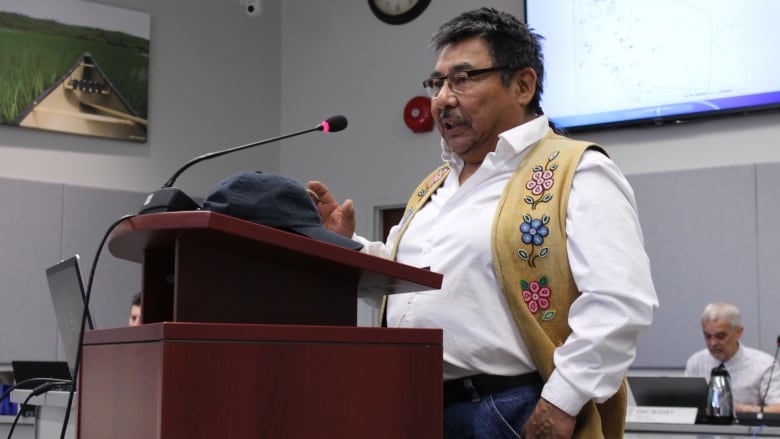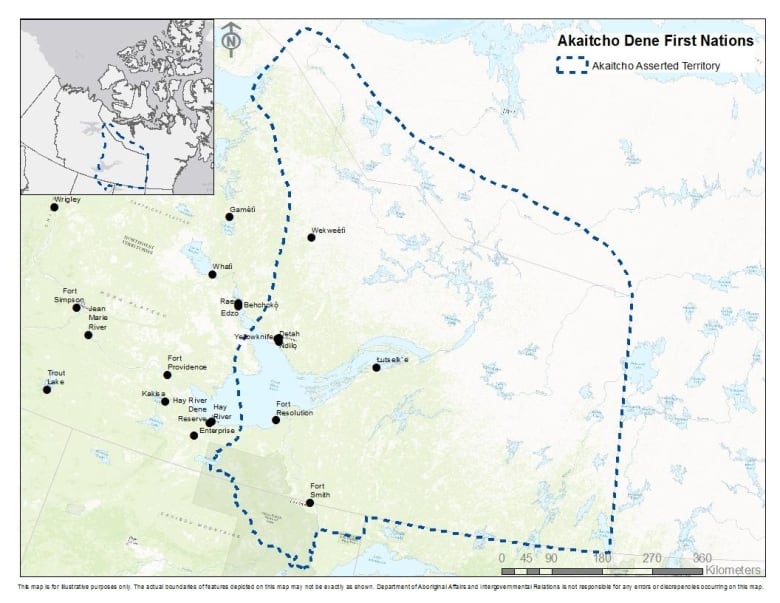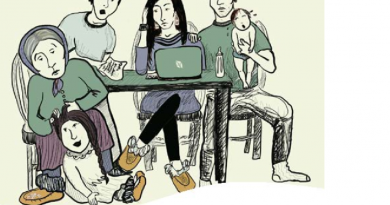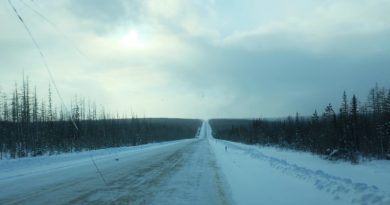Northern Canada: Akaitcho land claims & self-government process should be finalized next year, negotiator says

After 19 years, the Akaitcho land claim and self-government processes may soon be finalized. According to the community negotiator for the Yellowknives Dene First Nation, that could happen within the next year.
Fred Sangris gave an update on the Akaitcho process to Yellowknife city councillors Monday afternoon.
He said he hopes negotiations for an agreement-in-principle — an outline of what the final agreement is expected to look like — will be done within the next six to eight months, with a final vote by June 2020.
The Akaitcho process are negotiations focused on land, resources and governance in the Northwest Territories (Canadian central Arctic), involving the Deninu K’ue First Nation (Fort Resolution), Lutsel K’e Dene First Nation (Lutselk’e), and the Yellowknives Dene First Nation (Ndilo and Detah), along with their federal and territorial counterparts.
“It’s been very slow with different parties,” Sangris told council, referring to changes in leadership within the federal government over nearly two decades.
He said since the process started in 2000, they’ve gone through 12 different federal negotiators while the Akaitcho negotiating team hasn’t changed.
“We want our negotiations to continue, we want our grievances to be finalized, we don’t want to go on another forty years.”
Ndilo and Detah to join
Sangris said the Yellowknives Dene are claiming more than 1,000 hectares of land in Yellowknife, including Pilots Monument. He said the First Nation doesn’t have plans to do anything with that land besides to work with the city of Yellowknife to put up heritage sites there and in other places.
He said Pilots Monument in Yellowknife’s Old Town was historically used by Indigenous people as a signal hill for canoers.
“We’re not thinking about building any … homes [in the city],” he added. “We’d rather probably go past the airport or the other side of the lake.”

Sangris said the First Nation is also looking at combining Ndilo and Detah into one community once the Akaitcho process finishes so they can work together.
Ndilo currently falls within Yellowknife’s municipality, he said, meaning only Detah can receive money from the territorial and federal governments.
“Ndilo, [has] been living off Detah … until the scenario changes,” Sangris said.
Another idea once the process is finalized: build a museum, possibly in Yellowknife, all about the Dene in the Northwest Territories.
Looking at building 300 houses
Sangris said one priority once the Akaitcho process is finalized is to work on housing. He said about 200 Yellowknives Dene members are in need of housing, but because the land they would occupy isn’t titled, they can’t build anything.
Once the claim is settled, he said the plan is to turn the land into “fee simple” land, meaning it would be owned by the Yellowknives Dene, and in turn members could apply for loans to build homes from the bank, something they currently can’t do.
He said there’s a plan to build about 300 houses outside city limits where members and non-members could live. This has been a tentative plan for the past decade, but he said the First Nation won’t have the money for this project until the land claim is settled.
Related stories from around the North:
Canada: Canada moves to recognize NunatuKavut Inuit community in Labrador, Radio Canada International
Finland: Sámi youth oppose proposed Arctic rail line in northern Finland, Yle News
Sweden: Report sheds light on Swedish minority’s historic mistreatment, Radio Sweden



